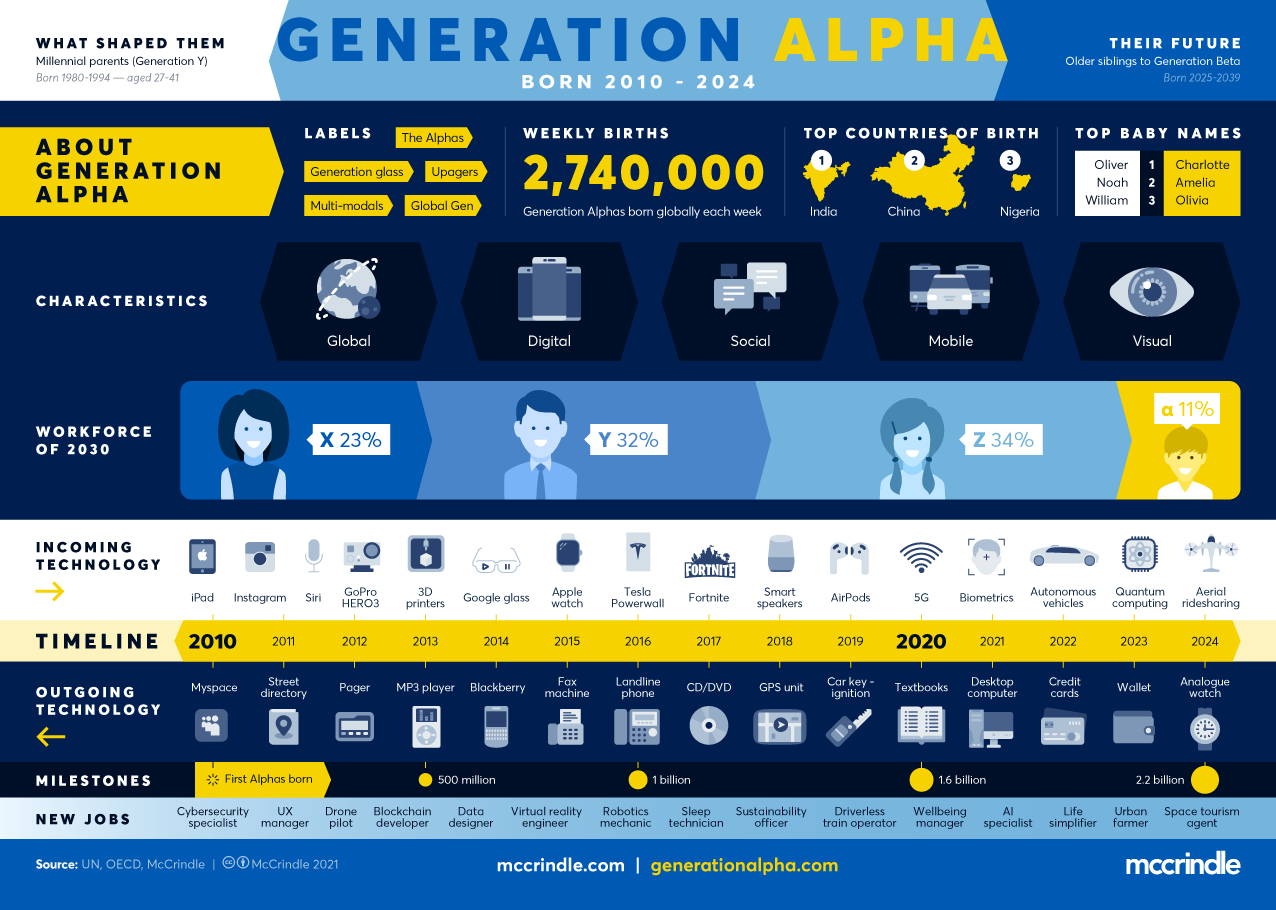Comments
- No comments found

Generative Artificial Intelligence – better known as ChatGPT – has taken the world by storm and there’s no stopping.
Every industry, business and profession – more likely the entire global economy - will be directly or indirectly affected by ChatGPT.
Why? It’s simple, because it will make things easier, from creation to design, productivity to organization, and far beyond.
The most tangible benefits of ChatGPT and the use of generative AI will be increased productivity and reduced costs, and there’s no one on this planet that doesn’t want that. From the perspective of the business owner and employer, this rapidly advancing technology – commonly known as artificial intelligence – will add to the bottom line, that is, profitability. On the other side of the coin, many employees will have to adapt and/or re-skill, in order not to become obsolete or be made redundant.
Sounds challenging? Yes, it is.
But let that one technology that’s going to put many of us out of work, become our digital personal assistant and used to our benefit.
Type in the prompt on ChatGPT “how to bullet-proof my career” and ironically, you will get a human-like response, but devoid of any emotion. And that right there is the crucial difference between artificial intelligence and humanity. We, humans, have reasoning, common sense, social skills and emotional intelligence; and this last one, is our comparative advantage in life, and competitive advantage in the workplace.
However, there are still many limitations that are associated with artificial intelligence. It is limited to pre-fed tasks and requires maintenance and constant supervision. Therefore, it cannot perform tasks that involve reasoning, such as effective marketing research and analysis or manage interpersonal conflict.
It lacks critical thinking and human creativity. Therefore, it mostly works off of other people's work. It lacks social or emotional intelligence, so it has no sense of safety, privacy, or ethics and can’t express feelings.
As I am writing this article, and while AI development races on, I use ChatGPT for writing assistance, research and fact-checking, at all times inputting my own creativity know-how, expertise and experiences gathered throughout life.
ChatGPT has catapulted AI from science and academia to mainstream. It amassed 1M users in just 5 days, then 100M within 2 months which is unprecedented and incredible by any standard.
ChatGPT is a game-changer of epic proportions and we are just at the very beginning. Throw in quantum computing, and we will enter a new dimension in artificial intelligence known as “super-intelligence”, which will advance and challenge humanity all at the same time.
For now, suffice to say that Quantum computing is a billion calculations per second and soon, 1billion per nanosecond which means that every password in the world can be cracked instantly and that presents a huge challenge all on its own.
ChatGPT takes this to an entire new level when it comes to “parameters”. These are the numerical values that determine how a neural network processes input data and produces output data. These are learned from data during the training process, and encode the knowledge and skills of the large language model (LLM). The more parameters a LLM model has at its disposal, the more complex and expressive it can be, and the more data it can handle.
ChatGPT-3 has 175 billion parameters, GPT-4 works on 1.7 trillion parameters and GPT-5 could operate on 17.5 trillion parameters, making it one of the largest neural networks ever created. GPT5 might possibly use 200 to 400 times more computing capacity than GPT-3 (using about 3.14 exaflops of computing power during training) which is absolutely mind-boggling.
The Alphas
Generation Alpha (also known as “Gen Alpha”) is the demographic cohort succeeding Generation Z. In a recent report by Harvard Business Review, it is stated that Generation Alpha will face significant challenges but also have incredible opportunities. This generation, born between 2010 and 2024, will experience the impact of climate change long after we’re gone. However, Gen Alphas will also have the chance to explore space, pursue careers that were once unimaginable, and solve problems that haven't even surfaced or exist yet. The Alphas will grow up in a world where crypto, blockchain, artificial intelligence, decentralized finance, impact investing, sustainable finance, augmented reality and digital disruption are integral parts of everyday life.
Gen Alpha, the generation that will grow up surrounded by artificial intelligence, augmented reality, and gaming, is expected to be the most innovative and technologically advanced generation yet. This will not only influence their approach to school, work, and socializing but also their spending habits. Companies are now actively seeking ways to blend the virtual and physical worlds to cater to this generation's preferences. With approximately 2.5 billion people by 2024, Gen Alpha is predicted to have the greatest transfer of wealth and unique spending power in history.
In contrast to their millennial parents, the Alphas are moving away from popular social media platforms like Facebook, Twitter, TikTok, Instagram and even Google for search and other products. Actually, Google is facing an existential crisis after ChatGPT has started to challenge its dominant market share of 93% in internet search, a massive 4.3 billion users. Gen Alpha find these platforms exhausting, misleading, negative, overwhelming, and even toxic. Instead, Gen Alpha’s are drawn to virtual reality instead of social media and rapidly advancing ChatGpt will be used for just about everything.
While Gen Alpha is entering a time of technological advancements, they are also faced with fluctuating volatility, unpredictability and uncertainty. As their formative years coincide with significant changes in technology, finance, economics, warfare, climate change, and the future of humanity, what their future workforce will look like remains unpredictable. Experts suggest that this generation will embrace “side hustles”, freelance, work-from-home (WHF) and the gig economy, most likely working independently and on-demand. The Alphas are expected to become skilled in utilizing artificial intelligence, machine learning and data to enhance their abilities in many fields.
Overall, Gen Alpha will experience a period of immense change in every aspect of their lives, including work, earnings, success, achievement and work/life balance.
It is important to acknowledge that despite the digital transformation they are living in, Generation Alpha still values human connections and the need for genuine relationships. Their impact on society is yet to be fully understood, but it will undoubtedly have global reverberations and a profound impact on our social fabric.
As technology progresses from personal and mobile computing to spatial computing, our design and development should prioritize enhancing the human experience. Technology should seamlessly integrate into physical and virtual touch points, paving the way for new sensory and experiential designs. What we create and design for Generation Alpha today holds great importance and will significantly impact our future development in all aspects of our lives.
Technology has always been an integral part of Generation Alpha's lives. As the most technologically adept cohort yet, they will grow up with AI, AR, virtual worlds, and spatial computing as the norm. They are the first generation to be raised in a world where these technologies are ubiquitous. For them, AI, AR, and gaming are not just tools but ingrained aspects of daily life. As they grow, they will increasingly adapt to advanced smart phones and emerging spatial computing headsets. Technology is like having a “know-it-all” portable personal assistant, shaping their lives in ways that previous generations could never have imagined.
Generation Alpha has an unprecedented opportunity to shape the future with their unique understanding of, and familiarity with technology. Their generation is moving beyond the confines of personal and mobile computing, embracing a world where the possibilities of spatial computing are boundless.
Gen Alpha, the next tech-savvy generation growing up in the era of multi-dimensional “spatial computing”, will possess more advanced digital literacy skills compared to previous generations. Raised by less tech-savvy Millennial parents, who are mostly devout social media users, Gen Alpha youth is being taught to embrace technology responsibly as well as make effective use of their time. Despite the rapid changes in disruptive technology, we shouldn't expect everyone to be walking around with AR or VR headsets anytime soon. While wearable AR glasses may sometime in the near future replace smartphones, this inevitable transition and technological advancement is not imminent. However, it's crucial for companies to already pay attention to Gen Alpha's interests to remain relevant and cater to their needs, as they will have a significant economic impact. Brands and retailers must embrace new technology and platforms to avoid being left behind in this new era of blended virtual experiences, digital identities, and commerce. Ensuring accessibility to personal finance, education, and online commerce will be crucial for meeting Gen Alpha's growing demands.
AI-resistant Career Skills
Creativity
Critical thinking
Intellectual Curiosity
Critical thinking, an essential skill in the modern world, is defined as purposeful, reasonable, and reflective thinking when faced with complex issues and conflicting situations. It involves questioning assumptions, gathering information, and constructing well-reasoned arguments. Interestingly, sometimes the importance lies not only in finding answers but in asking the right questions.
Creativity and critical thinking become more challenging in a tech-dominated society that is rapidly advancing, yet certainly not impossible. Intellectual curiosity, the drive to seek answers to unanticipated questions, holds tremendous value. Those who prioritize lifelong learning will outperform their “graduated” peers (with a rather limited career progression) and expand the knowledge of each of us exponentially.
Flexibility, intellectual curiosity and resilience are key attributes for individuals entering universities or the workforce. Futurists, scientists and experts encourage young people to develop a mindset that embraces change, exploration and disruption. In the modern world, graduating with a specialized degree no longer guarantees long-term employment in that specific area and for a lifetime (as was usually the norm). Instead, we must continuously acquire new skills and be open to changing jobs and careers. Continued learning should prepare us for this inevitable mindset and accelerating tech.
While AI may appear to have all the answers, there is still an abundance of unexplored questions waiting for us to discover. Embracing critical thinking, being creative and staying intellectually curious will help us navigate the uncharted territories of the future.

Copyright 2023 - McCrindle - Generationalpha.com
Eleftherios Jerry Floros is a FinTech Expert at Rethink Your Digital Future and founder of Elysian Impact Investing, a money super-app and impact investment platform powered by artificial intelligence, blockchain technology and data science. He is also an investor, entrepreneur, thought-leader, speaker and author with a 37 year diversified background in FinTech, finance, engineering, maritime and shipping. His main areas of interest are FinTech, impact investing, sustainable finance, entrepreneurship and digital disruption which is profoundly impacting the global economy as well as our personal lives. Mr Floros undertook studies at the University of Oxford, Wharton Business School of the University of Pennsylvania and the London Academy of Trading.
Leave your comments
Post comment as a guest